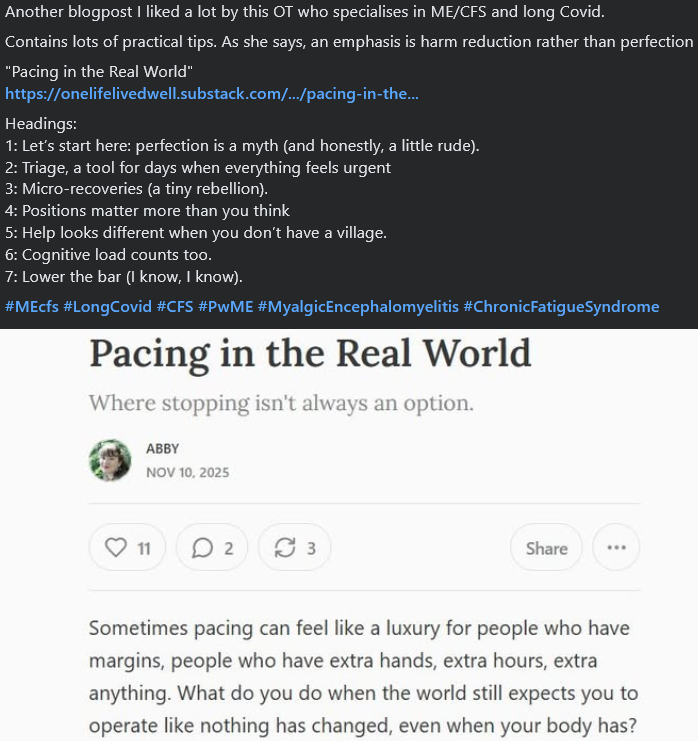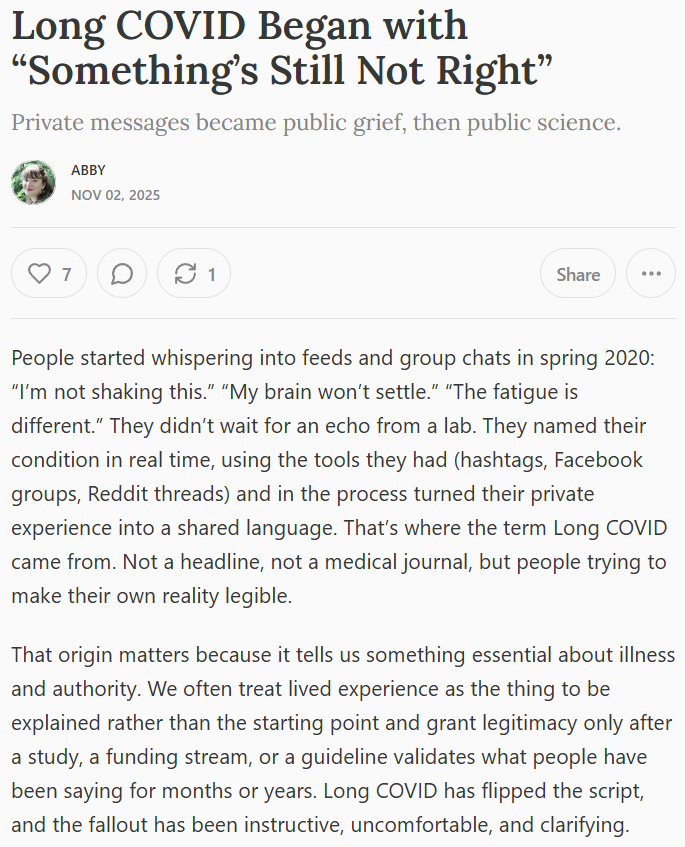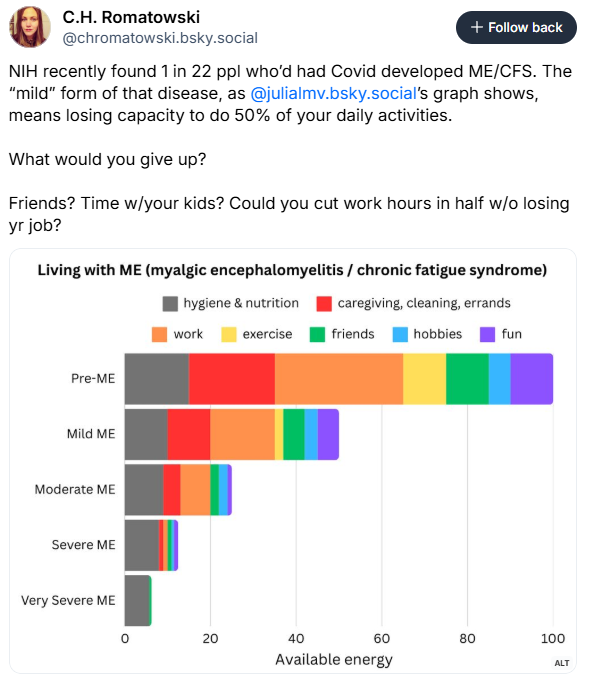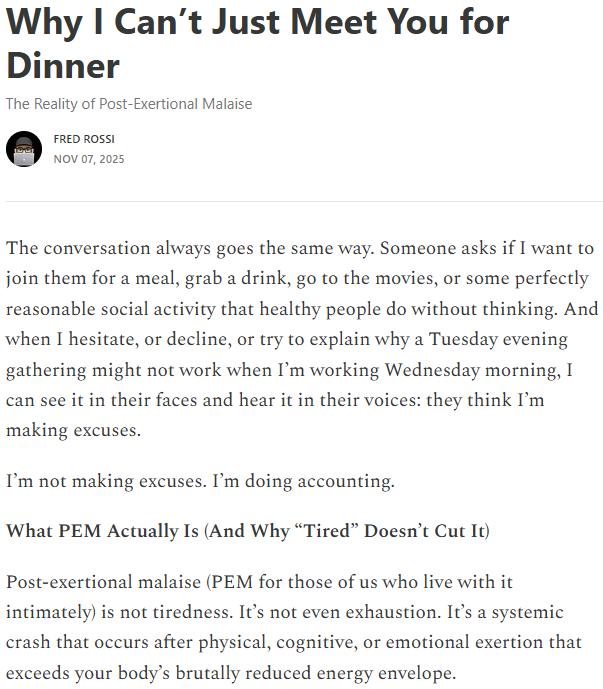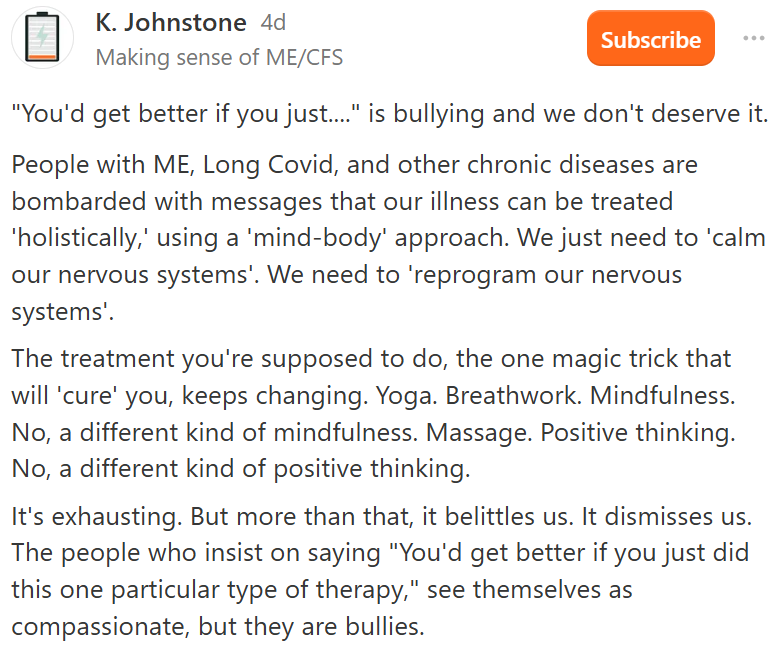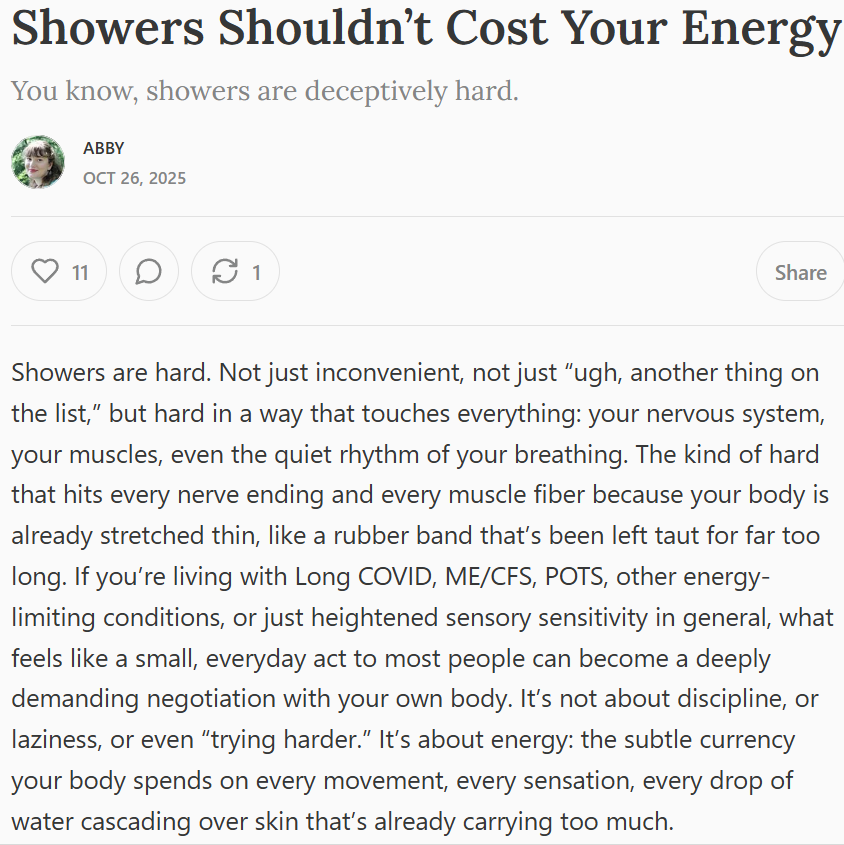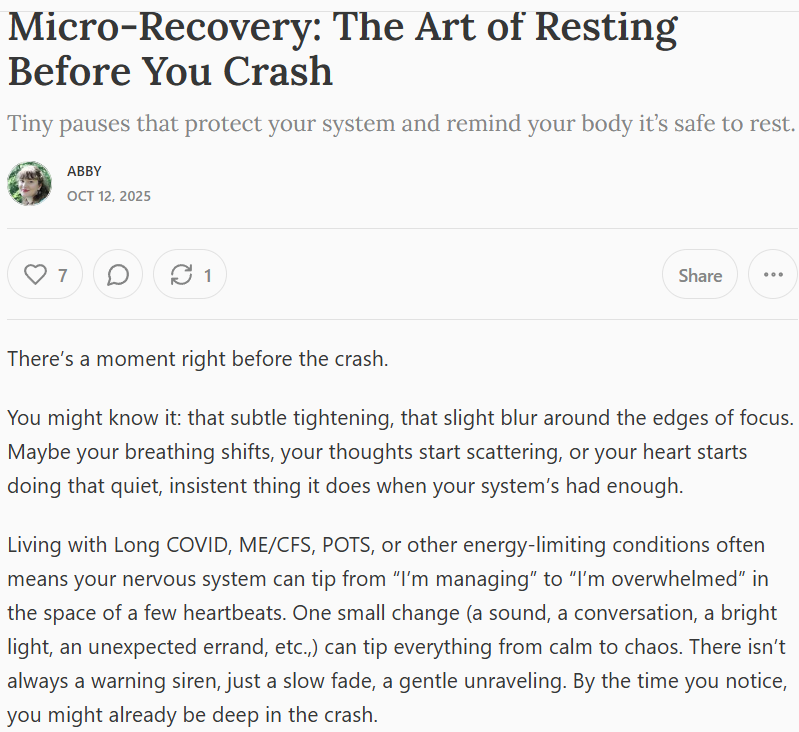Showers Shouldn’t Cost Your Energy
You know, showers are deceptively hard.
Abby
Oct 26, 2025
Showers are hard. Not just inconvenient, not just “ugh, another thing on the list,” but hard in a way that touches everything: your nervous system, your muscles, even the quiet rhythm of your breathing. The kind of hard that hits every nerve ending and every muscle fiber because your body is already stretched thin, like a rubber band that’s been left taut for far too long. If you’re living with Long COVID, ME/CFS, POTS, other energy-limiting conditions, or just heightened sensory sensitivity in general, what feels like a small, everyday act to most people can become a deeply demanding negotiation with your own body. It’s not about discipline, or laziness, or even “trying harder.” It’s about energy: the subtle currency your body spends on every movement, every sensation, every drop of water cascading over skin that’s already carrying too much.
